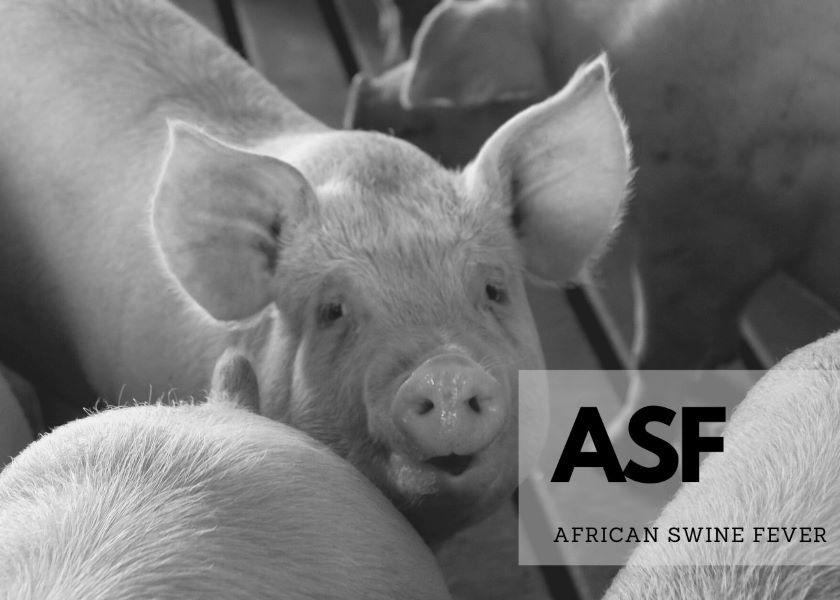USDA Prepares to Establish Foreign Animal Disease Protection Zone

USDA announced its intent on Aug. 26 to designate Puerto Rico and the U.S. Virgin Islands as a “protection zone,” a World Organization for Animal Health (OIE) designation that allows the U.S. to maintain its current animal health status should there be a detection of African swine fever (ASF) or other foreign animal disease on the island territories.
“ASF has not been detected in Puerto Rico or the U.S. Virgin Islands, and USDA is committed to keeping it out of both islands and the rest of the United States. Out of an abundance of caution, APHIS is taking this additional action to further safeguard the U.S. swine herd and protect the interests and livelihoods of U.S. pork producers,” APHIS said in a release.
The USDA will work to gain OIE acceptance of this designation to maintain U.S. pork export continuity should Puerto Rico or the U.S. Virgin Islands have an animal test positive for ASF in the future. When the protection zone is established, APHIS will have processes in place in Puerto Rico and the U.S. Virgin Islands to: restrict movement of live swine and products out of the protection zone; conduct appropriate surveillance within the protection zone to quickly detect introductions of disease; conduct a public education campaign relating to biosecurity on farms and other establishments, prohibitions on movement of live swine and products outside the region, contacting authorities to report clinical cases, and similar actions.
“We thank Secretary Vilsack for taking this pre-emptive step to preserve the continuity of U.S. pork exports as we continue to work together to prevent the spread of African swine fever to the United States,” Jen Sorenson, president of the National Pork Producers Council (NPPC), said in a release. “We have significantly bolstered U.S. biosecurity defense against ASF since it began spreading in the Asia-Pacific region nearly three years ago and must re-double our efforts given the recent outbreak in the Dominican Republic.”
The USDA announced confirmed cases of ASF in the Dominican Republic on July 28. The cases were confirmed as part of an ongoing cooperative surveillance program between the U.S. and the Dominican Republic. The U.S. imports no pork, animal feed or other pork production-related products from the Dominican Republic.
The USDA, Customs and Border Protection (CBP), NPPC and other industry organizations are working together to keep ASF out of the U.S., NPPC said in a release.
These measures include:
• Aid to the DR - The USDA is providing continued testing support to the DR, setting up laboratory equipment and training laboratory personnel, providing personal protective equipment, and offering ongoing assistance on response and mitigation measures. In addition, surveillance and testing aid have been offered to Haiti, as it borders the DR and is at a significant risk for contracting ASF.
• Haiti Risk Mitigation - NPPC has reached out to the U.S. Department of State to ensure appropriate ASF-prevention protocols are followed by U.S. earthquake relief workers travelling to and from Haiti (e.g. making bleach solutions available to disinfect shoes). The State Department, USDA and USAID are collaborating in this effort.
• Enhanced mitigation efforts in Puerto Rico - CBP and USDA have taken a number of steps to guard against the spread of ASF to Puerto Rico, including support for the U.S. Coast Guard to intercept illegal boat traffic from the Dominican Republic and Haiti to Puerto Rico. They have also prioritized depopulation of urban feral pigs in Puerto Rico over the next 12 to 18 months and are establishing a surveillance lab in Puerto Rico.
• Collaboration with Mexico and Canada - The U.S. is working with Mexico and Canada to bolster ASF prevention efforts across North America. For example, Mexico has tightened inspection at land and sea ports since the Dominican Republic outbreak. It has also taken appropriate measures to mitigate the risk presented by migrant workers moving between Mexico and the Dominican Republic. In addition, NPPC represents U.S. producers on the North American Swine Health Working Group, which was formed by the chief veterinary officers of Mexico, Canada and the U.S. The focus of the group has been biosecurity of the North American continent, laboratory harmonization and developing criteria for recognition of regionalization.
“APHIS is confident that its many existing preventive measures and mitigations, along with the additional measures underway and announced today, will protect our livestock industry from ASF and ensure the continued export of pork,” APHIS said in a release.
More from Farm Journal's PORK:
Close All the Windows to Keep ASF Out
It’s Unlikely the U.S. Will Escape ASF







